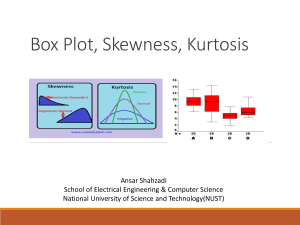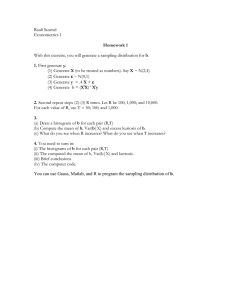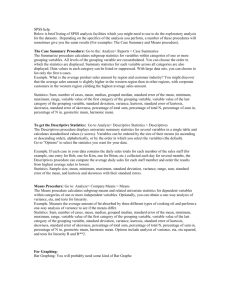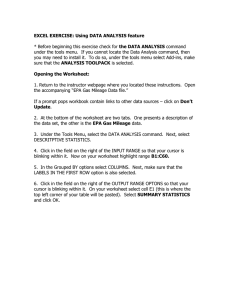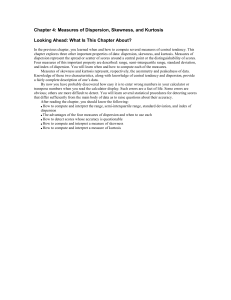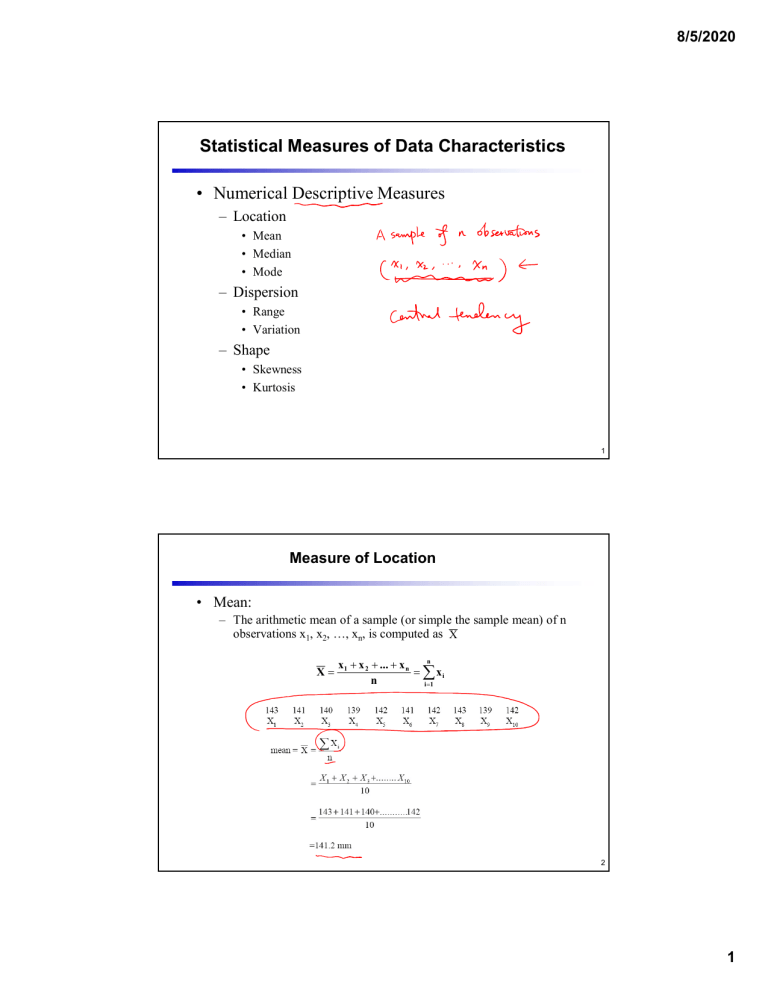
8/5/2020 Statistical Measures of Data Characteristics • Numerical Descriptive Measures – Location • Mean • Median • Mode – Dispersion • Range • Variation – Shape • Skewness • Kurtosis 1 Measure of Location • Mean: – The arithmetic mean of a sample (or simple the sample mean) of n observations x1, x2, …, xn, is computed as X X n x1 x 2 ... x n xi n i 1 2 1 8/5/2020 Measure of Location (contd.) • Median – The median is defined to be the value which divides the data into two equal parts, i.e. the 'middle' value. Half the values are above it and half are below it. – To obtain the median • Order the data in ascending order. • For n items in the data set, the median is the (n + 1)/2 observation 3 Measure of Location (contd.) • Mode – The mode of a set of n measurements X1, X2, .......Xn is the value of X that occurs with the greatest frequency. (i.e. the most popular or common value) The mode is 142 4 2 8/5/2020 Measures of Dispersion • Range – The simplest measure of the spread or variation of a set of data is the range, R, which is defined as the difference between the largest and the smallest value. – Although the range is a simple-to-use measure of variation, it only uses the two extremes of the data set (i.e. the maximum and minimum values). Thus, it is significantly affected by extreme (outlying) values within the data. 5 Measures of Dispersion (contd.) • Variation/Standard Deviation – It is based on the idea of measuring how far, on average, the observations are from the centre of the data. For technical reasons, to average the squared deviations we divide by n – 1 rather. The variance is measured in the square of the units of the original data s2 = – All the other summary statistics we have considered are in the same units as the data. Thus a better measure for practical use is the square root of the variance called the standard deviation defined by: 6 3 8/5/2020 Measure of Shape • Skewness – If the distribution of the data is not symmetrical it is called asymmetrical or skewed – Skewness characterizes the degree of asymmetry of a distribution around its mean n xi x n skewness ( n 1)( n 2) i 1 s Right-skewed (+) 3 Left-skewed(-) 7 Measure of Shape (contd.) • Kurtosis – Kurtosis characterizes the relative peakedness or flatness of a distribution compared with the bell-shaped distribution (normal distribution) 4 n xi x n( n 1) 3(n 1) kurtosis (n 1)( n 2)( n 3) i 1 s (n 2)( n 3) Kurtosis>0 Kurtosis=0 Kurtosis<0 8 4 8/5/2020 Random Variables • A variable whose values are random but whose statistical distribution is known – Discrete random variable is one that can assume only a countable number of values – Continuous random variables can assume any value in one or more intervals on a line Prob. distribution of a discrete random variable Prob. distribution of a continuous random variable (Prob. Density function) 0.75 0.50 0.25 1 2 3 a b 9 Normal Probability Distribution • The probability density function – u is the mean – σ2 is the variance f ( x) 2 2 1 e ( x u ) / 2 2 u 10 5
